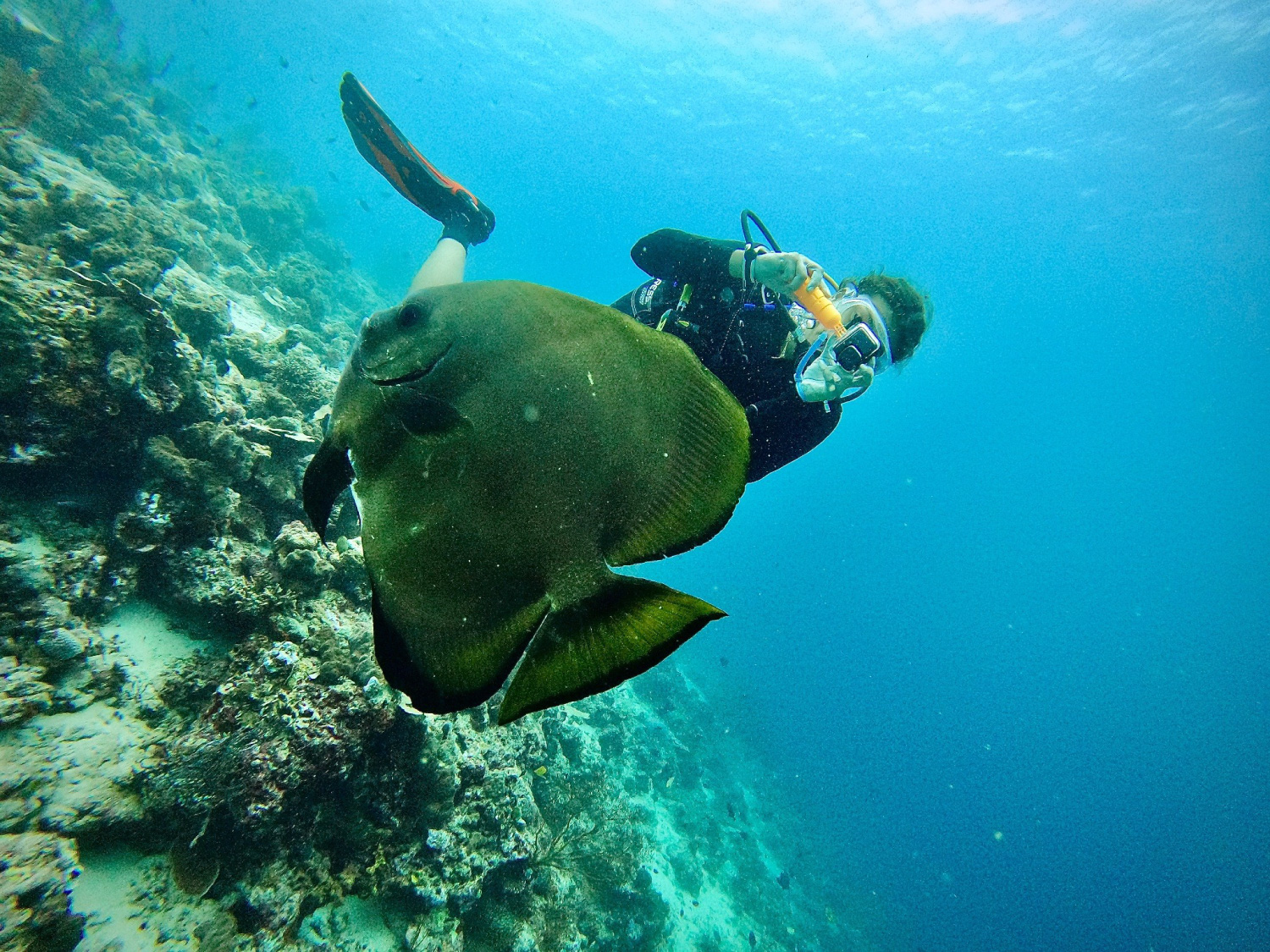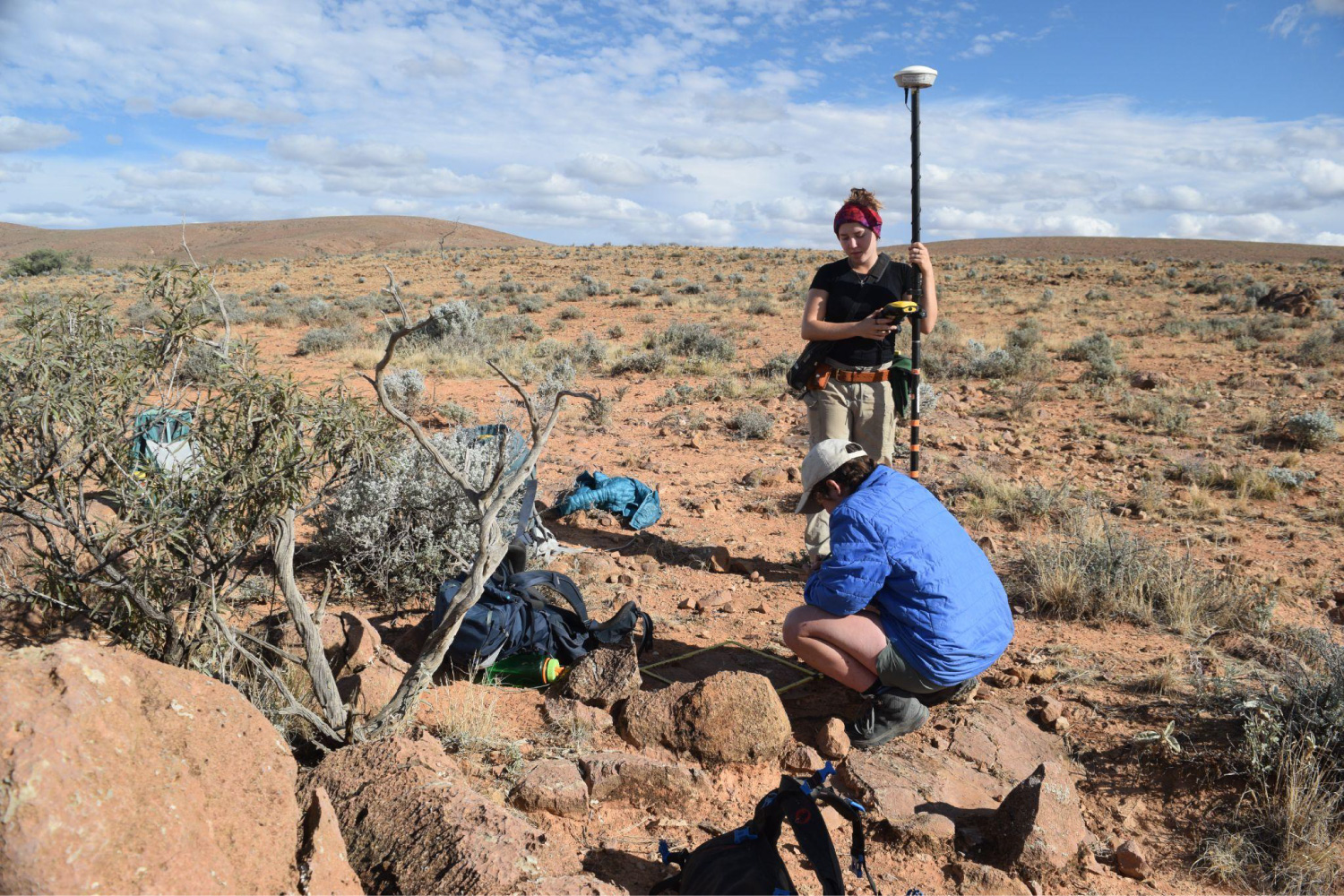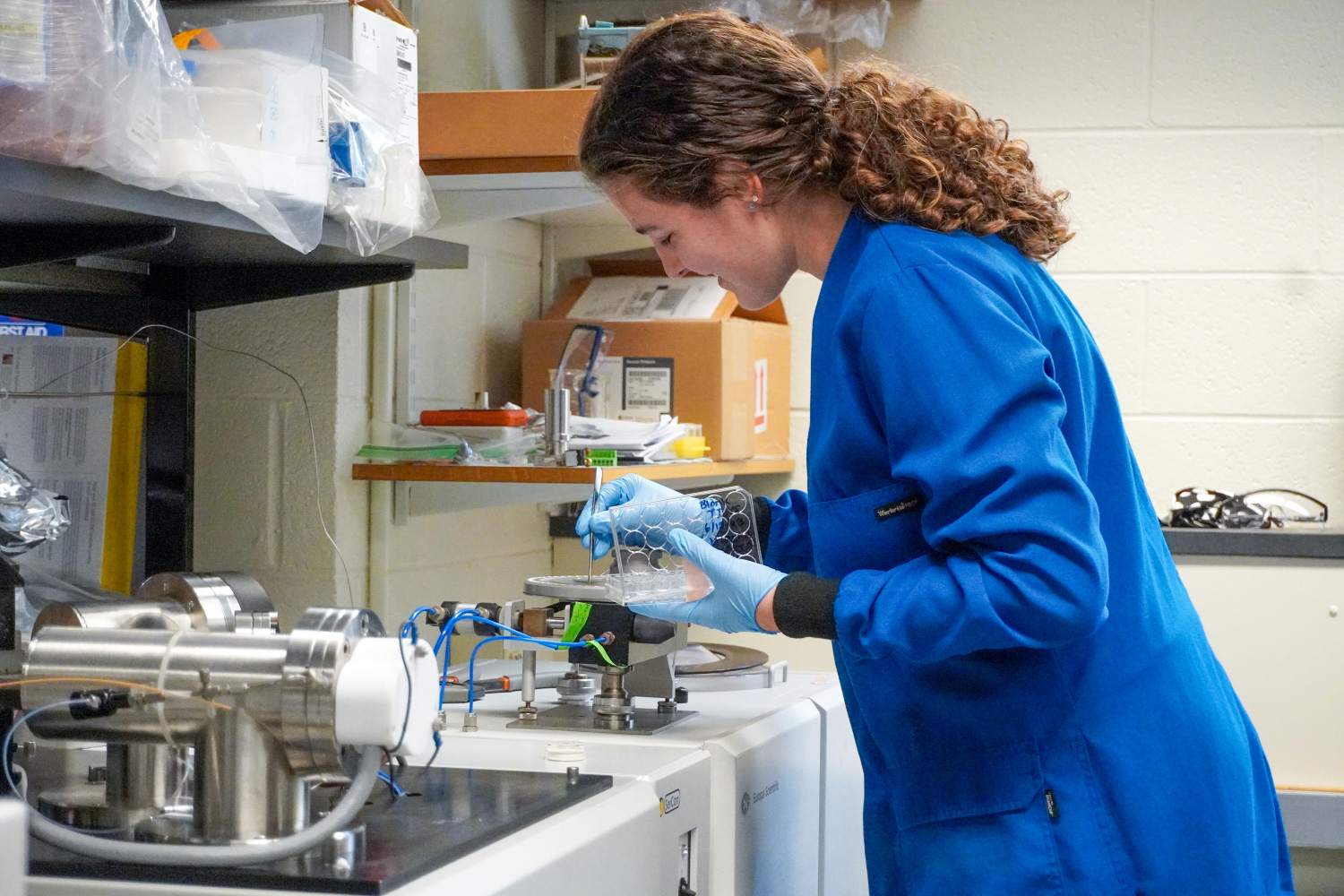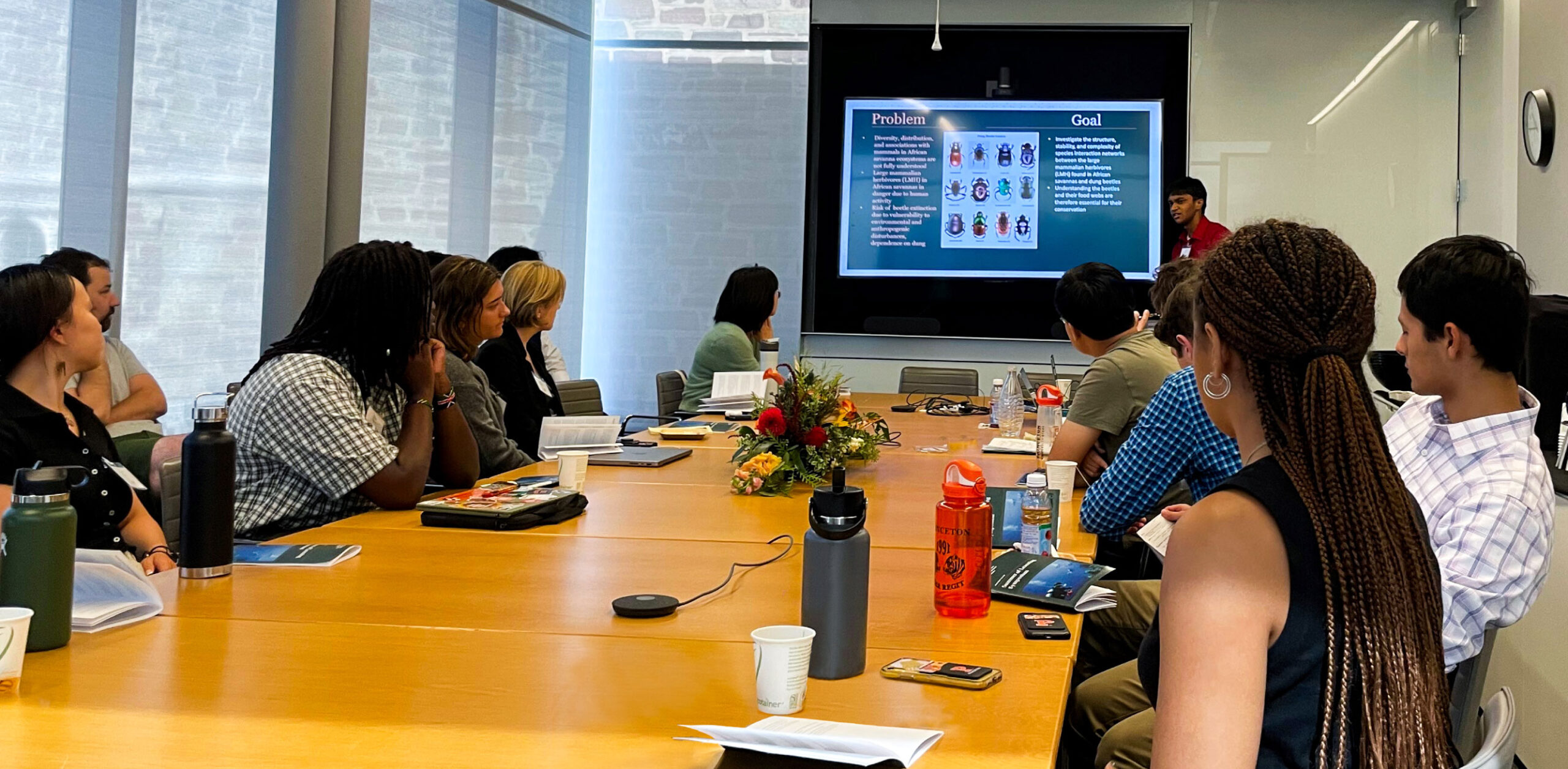HMEI’s Summer Internship Symposium Highlights Students’ Summer Fieldwork
On September 15, the High Meadows Environmental Institute (HMEI) hosted the 16th Annual Summer of Learning Symposium.
“The Symposium is something we hold every fall,” said Emily Ahmetaj, Internship Program Manager HMEI. “It highlights the work of students who participate in our summer internship program. Students come together and present their work in a setting designed to recognize and celebrate their respective contributions and outcomes, and encourages the exploration of practical, achievable pathways toward a healthier and more sustainable planet.”
This fall, more than 100 students from 23 academic departments, who had spent the summer working on environmental research projects alongside faculty and researchers as HMEI summer interns, presented their projects.


HMEI’s Environmental Internship Program provides opportunities for students to complement their classroom studies with hands-on work and research experiences with a goal of augmenting students’ perspectives and preparation as future leaders and researchers. During internships, students work with university faculty, researchers from other scientific enterprises, and non-profit organizations on projects focused on pressing environmental challenges.
This year’s symposium was organized as seven faculty-moderated sessions focused on topics including water and environment, biodiversity and conservation, food systems and health, urban sustainability, a new energy future, climate and environmental science, and oceans and atmosphere. Within each of the sessions, students shared highlights of their work and project outcomes as short presentations and answered questions from others in attendance including faculty, researchers, students, and guests.
The nature and focus of the summer projects and the talks varied considerably. Students in the Water and Environment session, for example, covered topics ranging from the aftereffects of the fiercely destructive Typhoon Haiyan that ravaged the Philippines in 2013 to the development of computational and mathematical models of soil properties in complex terrain. The Biodiversity and Conservation session included such topics as the evolution of fruit fly competition, how marmots and humming birds are responding to climate change, and dung beetle food webs in the African savanna.


Beyond highlighting interns’ summer research, the Summer of Learning symposium underscores the breadth and diversity of research currently being done at Princeton to address myriad environmental problems—everything from climate change and pollution to biodiversity loss and nitrous oxide buildup in the world’s waterways and, in many instances, suggests novel insights into complex environmental issues and the potential for solutions.
HMEI’s Environmental Internship Program began sixteen years ago with a relatively small number of project opportunities but has since grown to the point that well over 100 undergraduates are supported annually on cutting edge research projects with Princeton University faculty. Undergraduate students apply for internships as early as their freshman year and for many students, the internship is an opportunity to delve into an area of curiosity and interest that later shapes independent work in their junior and senior year.
Applications for the HMEI internships are awarded competitively. To be considered for an internship, students must apply for a particular opportunity. The application period lasts from mid-November to early January with decisions made by faculty and project PIs on a rolling basis following the proposal deadline.


(Photo by Mae-Yung Tang, HMEI)
“We receive over 500 applications from about 300 students each year,” said Ahmetaj. “Ultimately, between 100 and 120 students are awarded positions.”
HMEI summer internships last between eight and twelve weeks in the summer months and include work in the United States and abroad. Approximately sixty percent of the internships are in domestic locations including in laboratories at Princeton, while the remaining forty percent take place internationally in field sites around the globe. In 2023, students pursued field work in the Philippines, Brazil, Australia, Madagascar, Kenya, Mozambique, Singapore, and Indonesia, among other foreign destinations. Ahmetaj noted that students working overseas have the added benefit of living and working in a country with different language and cultural traditions.
“Ultimately, the internship program is about experiential learning,” said Ahmetaj. “The program allows students to put what they learn in the classroom into real-life, hands-on experiences.”
The deadline for summer 2024 internship applications is January 8, 2024.




